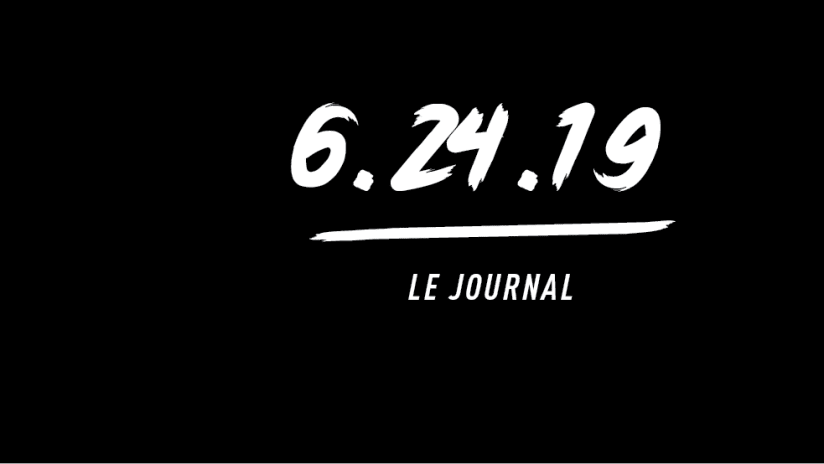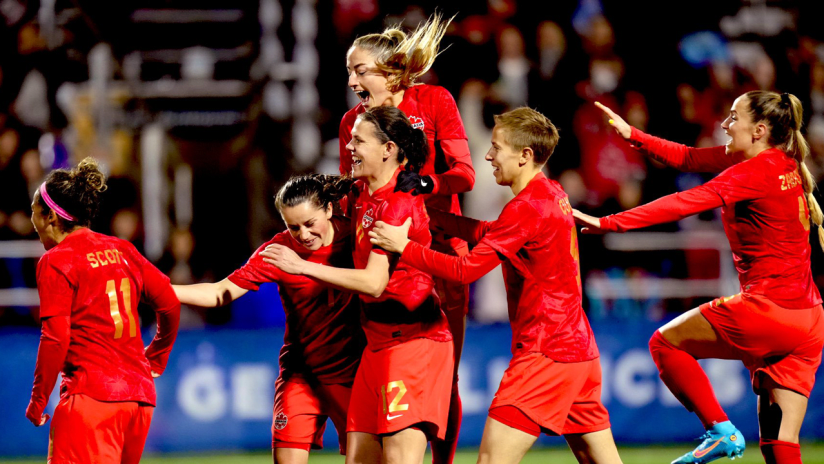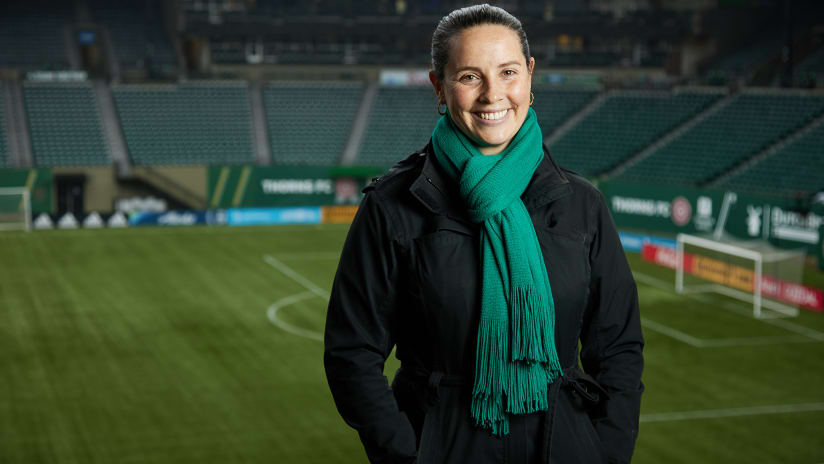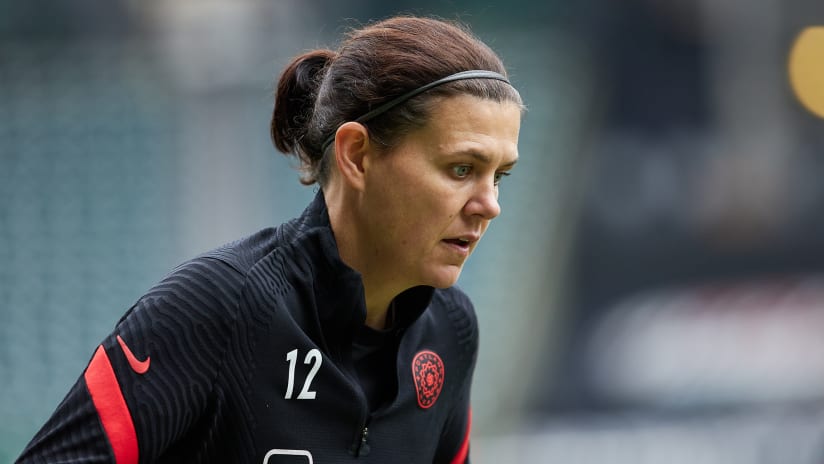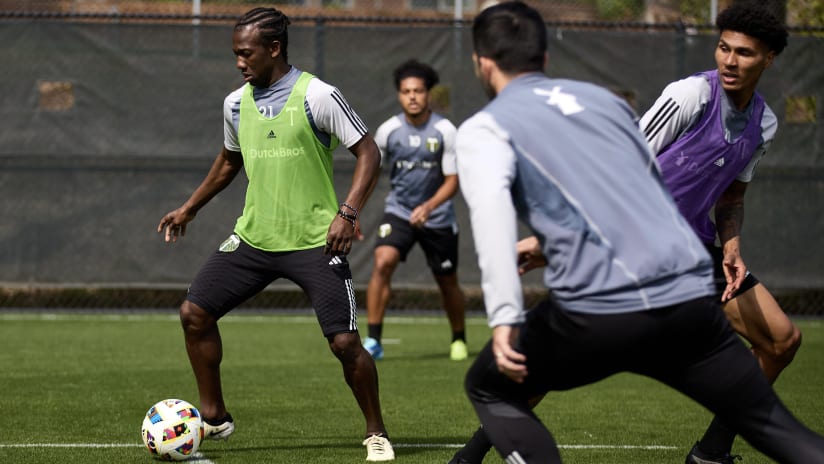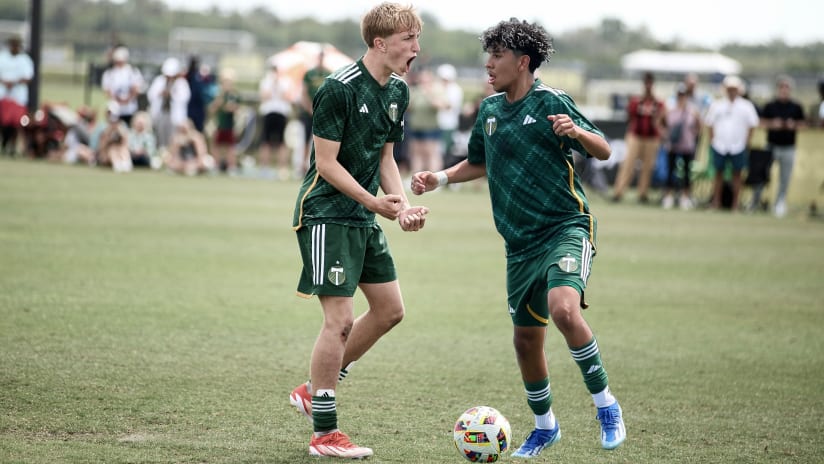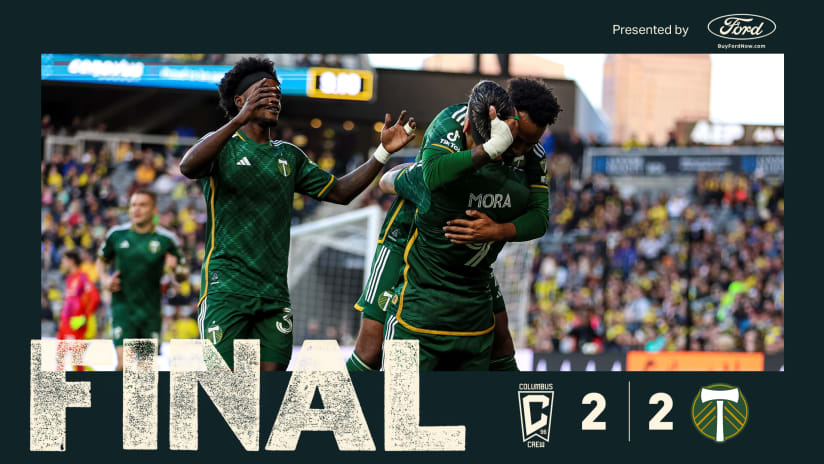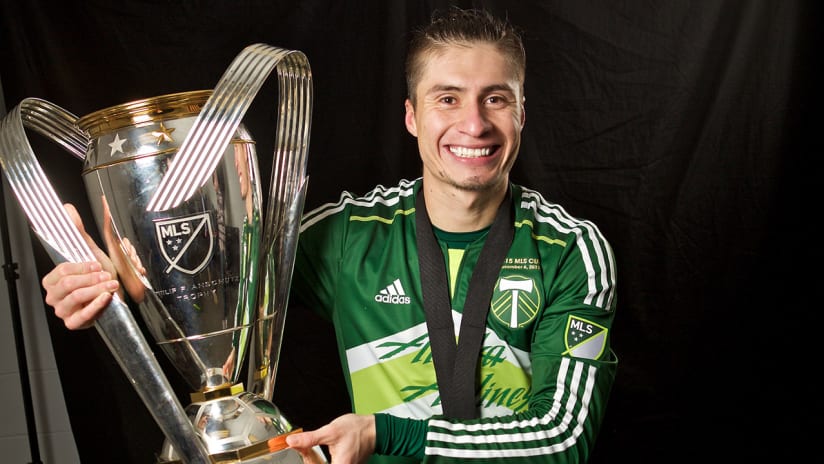And here we thought the day’s story would be Lindsey Horan not starting. Unfortunately, no. Although we all knew it was possible Canada could fall to Sweden in the Round of 16 at this year’s World Cup, when full time came this afternoon, it felt like we hadn’t given the scenario enough thought.
One random chance, one misjudged ball played behind the defense, and one goal early in the second half, and Christine Sinclair’s chance at a World Cup ended. Sweden had seen Canada out of the competition, winning 1-0. Sinclair ended her time in France deflated on the turf.
To act like Sweden’s goal was the match’s pivotal moment is too easy, though. It would be dodging all the confusion, pain and disappointment that came in the 69th minute – the moment that’s bound to define Canada’s tournament. Nothing against Stina Blackstenius – a great attacker who's destined to do even greater things as her career plays out – but her conversion past Stephanie Labbé in the 55th minute will, for most casual fans, be forgotten. Instead, what people will remember is Kosovare Asllani’s 68th minute handball, the expectation that Sinclair would equalize from the spot, only to see Janine Beckie take a spot kick that Hedvig Lindahl pushed past her right post.
Why didn’t Sinclair take that kick? We nearly had a similar moment in the first game when, with the United States tied at one with Spain, Alex Morgan started lining up a ball from the spot. Megan Rapinoe was supposed to take these. She’d already converted one earlier in the match. With a chance to seal a spot in France 2019’s quarterfinals on the table, that moment seemed the wrong one to start spreading the love.
After the game, head coach Jill Ellis explained Rapinoe had been willing to give the kick to Morgan, but that wasn’t coach’s plan. As video review examined the play, the United States worked it out, and Rapinoe returned to the spot. The goalkeeper guessed right. Rapinoe’s kick was too good. The U.S. won, 2-1.
So, what had happened in the Canada game? It’s all anybody wanted to talk about. The country has literally the best goal-scorer in the game’s history, somebody who normally takes their penalty kicks. But Sinclair is also somebody who failed to convert against Lindahl in this year’s Algarve Cup. Beckie had converted. When it came time to choose who’d try and save the Canadians’ World Cup, Sinclair, according to Beckie in the post-match mixed zone, asked her teammate to step up.
It makes the loss even more painful. Sweden is a quality team who, as they reminded the world in the 2016 Olympics, is capable of beating anybody. Particularly defensively, their style, experience and physicality can present problems. Canada was never going to be immune to those challenges, but if they were truly to be a dark horse in the bottom half of the Knockout Round bracket, the biggest challenges lied ahead. How could we consider Canada a real contender if they couldn’t navigate Sweden’s obstacle?
As the U.S.’ day against Spain showed, though, even the Knockout Round’s early obstacles are formidable. France learned the same on Sunday when they needed extra time to eliminate Brazil, while Australia now sits in the same situation as Canada, having also been ousted by a Northern European team at step one of the Knockout Round. To lose or struggle at this stage of the competition is not unheard of, but it’s also something teams with real aspirations expect to overcome.
But again, that’s what makes today hurt more. Canada had dealt with their obstacles and kept themselves close enough to benefit from a break, one that came when a shot struck Asllani’s arm. The 1-1 situation would have been the same thing the United States and France had dealt with in their matches. It would have been the same thing those favorites had overcome. All Canada had to do was convert.
Instead, they’re left with a situation that’s somehow worse than a loss. They’re left with a loss and what ifs. As much as their 2019 tournament will be defined by Lindahl’s save, it will also be defined by wondering what would have happened if Sinclair took that kick. She failed to convert at Algarve, but with four years’ work on the line, would you rather bet on Sinclair or, well, anyone else?
When Sinclair didn’t step to the ball, we all thought we knew the answer, and instinctively, we thought Canada was wrong. How could she not take this shot? But having heard Beckie’s explanation, and with some distance from the moment’s emotions, it’s easy to see the other point of view. There was a rationale there, one we hadn’t foreseen before, and one which, detached from the game, seems reasonable. It’s possible their choice was the correct one.
That language, though, is part of the pain. “Possible.” We will never know for sure. Did Beckie, Sinclair, and Kenneth Heiner-Møller make the right choice? No, you could say. She didn’t convert! But is there a world out there where Sinclair, Jessie Fleming, or any other Canadian had a better chance of making that shot? Or is there even a world where a team trying to act in their best interest could possibly know? Does anybody truly believe that Canada, amid a myriad unknowables, thought they were doing anything but putting themselves in the best situation possible?
Their best situation possible might have been one where Lindahl saves that no matter what. She looked confident from the moment the ball was put down. Dancing on her toes, cognizant of staying on her line, the long-time international exploded to her right, covering far more ground than Beckie’s try required. The ball was never close to going in, but even a better shot may have met Lindahl’s gloves. Maybe, no matter the kicker, she was always going to make that stop.
It just feels wrong. It wasn’t what we thought should happen, and in our hearts, we probably think our plan would have worked. Probabilities, alternatives, customs, expectations – none of it matters, but in terms how we feel, they’re the things that matter most. They’re the things that will keep telling us that Canada was wrong.
Rationale or not, that’s not the feeling you want when a team’s tournament is done. That, however, is the last memory we’ll have of Canada’s World Cup.

